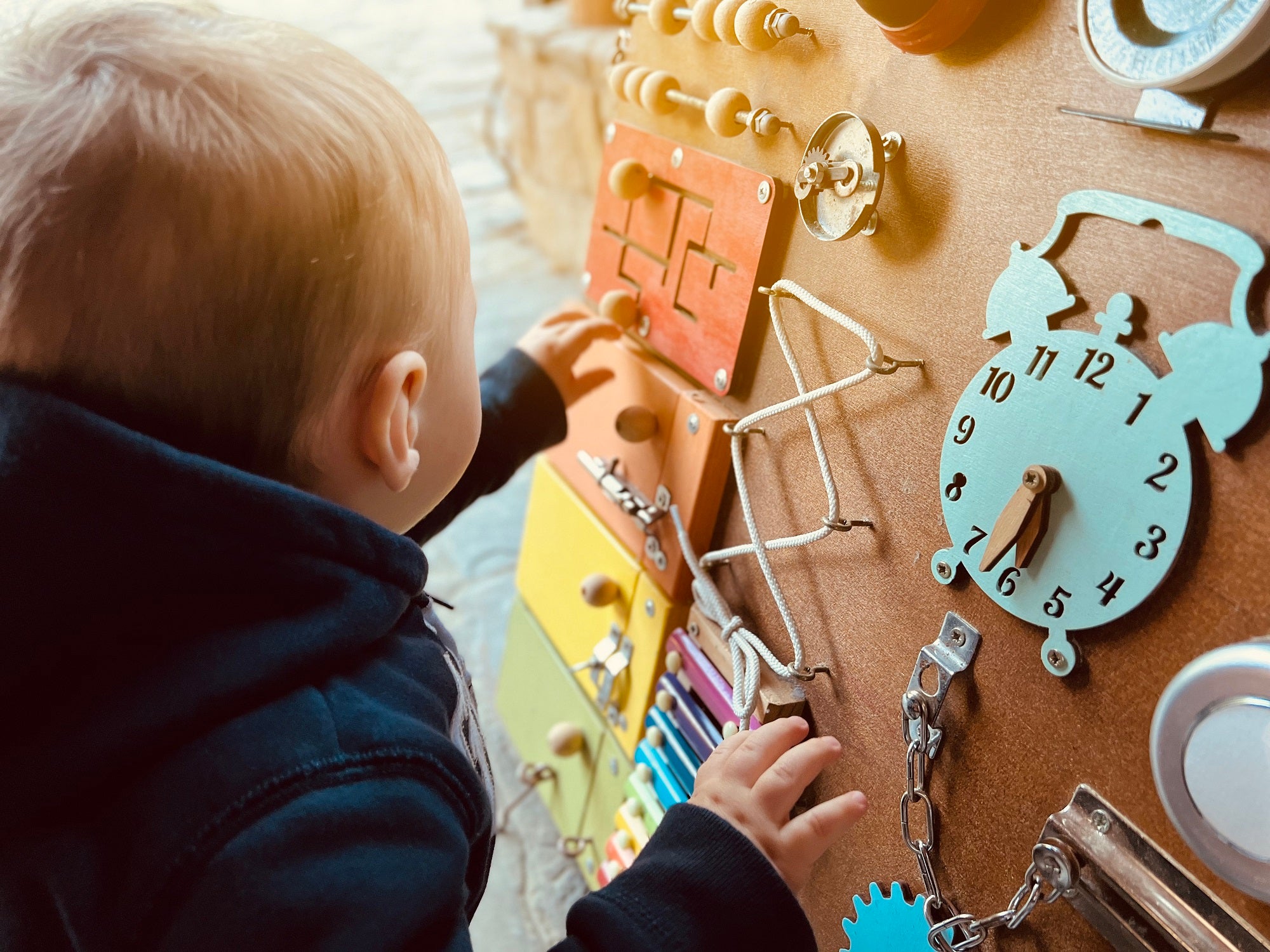Covid-19 and Child Development

Posted in Development and Learning Early Childhood | Tagged Covid
by Jennifer Guo, December 21, 2021
For the past year and a half, Covid-19 has greatly affected the way we live. The virus’ high risk of transmission has caused shut-downs all over the world, confining people to their homes. The economic recession has also cost many people their jobs, leading to financial insecurity. While we are all feeling the negative effects of the pandemic, young children are in a particularly vulnerable position right now. The combination of decreased socialization and the added financial stress on parents can have a profound effect on a child’s early development. (Rafanelli, 2021).
Children greatly benefit from interaction with others. During playtime with their peers, they learn methods of navigating different social situations, emotional regulation, and speech and language skills. When isolated at home, children are largely deprived of these learning opportunities. Even though kids are slowly returning to in-person classes, teachers have noticed differences in behavior. For example, in order to social distance, the children know that they have to stand far apart and sharing is discouraged; however, sharing is very important in life, and they are missing the chance to develop this and other interpersonal skills (https://www.sharp.com/health-news/how-does-limited-socialization-affect-young-kids.cfm). Specifically, in terms of communication, restrictions on large in-person gatherings have also prevented children from participating in “peer talk.” During conversations with classmates, they typically would learn new words, how to take turns speaking, and how to pick up on nuances and tones in speech. Less “peer talk” leads to delayed development of these skills. Also, since a mask covers the bottom half of the face, children may also miss out on comprehending facial expressions. (Charney, Camarata, & Chern, 2020).
In addition to social skill concerns, economic consequences of Covid-19 can also negatively affect child development. Many families are currently experiencing financial, food, and housing insecurities. In order to deal with these immediate issues, parents have less time to devote to their kids. Parent-child interactions are very important for growing neural connections and language and emotional skills under normal circumstances; given that the pandemic has cut children off from interactions with non-family individuals, their relationships with their parents are even more crucial. Financial, food, and housing insecurity can also be considered adverse childhood experiences (ACEs). Continued exposure to ACEs can cause toxic stress, which can lead to educational delays and predisposition to adult-onset health problems. Parents may also experience toxic stress due to added burdens. If they react poorly or cannot manage the stress, their actions may also negatively affect their kids (https://developingchild.harvard.edu/resources/what-is-covid-19-and-how-does-it-relate-to-child-development).
In an unprecedented and stressful event like the pandemic, it is especially important that programs be implemented to aid the families of young children. Family-centered care will not only benefit the children and promote proper development, but also to give parents the resources to be better caregivers. With support systems in place, we can provide the children of this pandemic the opportunity to thrive.
References
Charney, S. A., Camarata, S. M., & Chern, A. (2020). Potential impact of the covid-19 pandemic on communication and language skills in children. Otolaryngology–Head and Neck Surgery, 019459982097824. https://doi.org/10.1177/019459…
How does limited socialization affect young kids? (n.d.). Retrieved April 9, 2021, from https://www.sharp.com/health-n…
Rafanelli, A. (2021, January 19). Growing up in a pandemic: How covid is affecting children’s development. Direct Relief. https://www.directrelief.org/2…
What is covid-19? And how does it relate to child development? (n.d.). Center on the Developing Child at Harvard University. Retrieved April 9, 2021, from https://developingchild.harvar…
